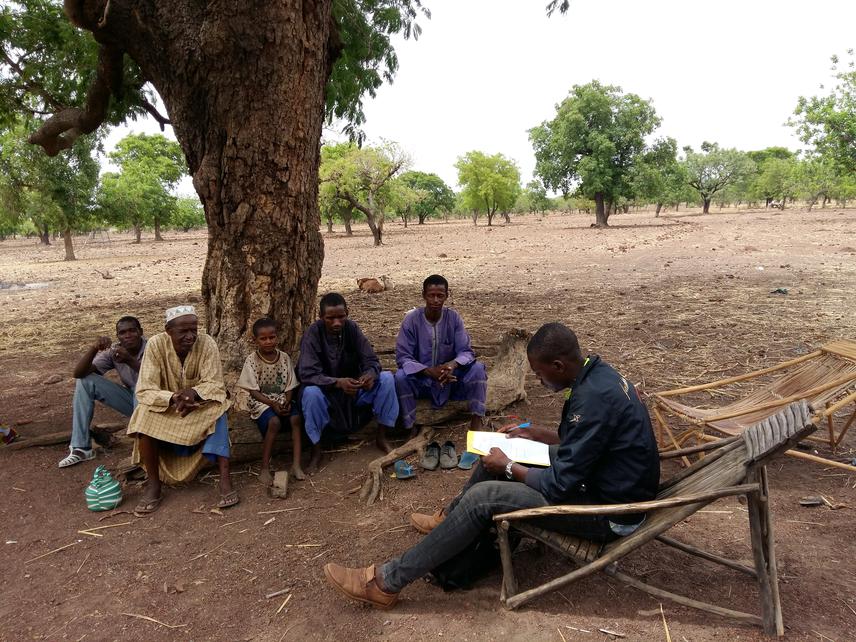Bondé Loyapin
Other projects
11 Jan 2023
Restoring Population Stands of Pterorapus erinaceus an Endangered Species by Improving its Natural Regeneration and Planting in Suitable Habitats
The high demand for Non-Timber Forest Products (NTFPs) combined to the use of destructive methods for their harvesting really compromise both NTFP species and habitats conservation. This project aims to: (i) eradicate the uncontrolled use of destructive methods for NTFPs harvesting through people awareness about the negative effects of these methods on savanna ecosystems conservation such us the decrease of the populations of NTFPs species, habitats degradation, the drop of NTFPs productivity and economic loss associated ; (ii) develop with local people appropriate harvesting methods securing species conservation; (iii) install natural assisted regeneration system to create suitable conditions for the growth of NTFP species most vulnerable and (iv) formulate alternative recommendations supporting their sustainable use. Ethnobotanical investigations and field work will be done to collect data. At the end of the work, assisted regeneration will be performed, a workshop and regular radio announcements will be organized for people awareness.

Ethnobotany survey with herders.
In the context of climate change where recurrent droughts and floods have negative effects on agricultural production, rural people in many regions of Burkina Faso are experiencing low yields and significant crop losses. To limit their vulnerability, people resort to the exploitation of NTFPs (leaves, flowers, fruits/seed) for fitting their socio-economic needs with little attention to species conservation. Indeed, people use destructive methods such as branch pruning and tree cutting for rapid harvesting to maximize gains. In dry season, many tree species are pruned for forage supplying. Fruits/seeds of some tree species are also fully harvested leading to strong reduction of seeds bank in natural habitats. These practices contribute to habitats degradation, cause a problem of regeneration at long-term and lead many species to be vulnerable or endangered. Therefore, developing sustainable use strategies is strongly needed to ensure both species and habitats conservation. The following activities will be conducted to fit this need.
Activity 1: Ethnobotanical investigations
Investigations will be carried out in three villages of the region of “Boucle du Mouhoun” on species whose branches are pruned for leaves and/or fruits/seeds harvesting. Local knowledge will be firstly recorded by focusing on local perception regarding the effects of destructive methods for NTFPs harvesting on species conservation and their space-time dynamics. Then, species overexploited and in decline will be identified. Lastly, sustainable use methods for NTFPs harvesting will be proposed with local people involvement.
Activity 2: Effect of NTFPs harvesting methods on species and habitats
This activity will assess the effects of uncontrolled branch pruning on tree architecture (diameter and height of crown) and habitats degradation (% of trees pruned and % of land cover degraded). Tree density, population structure of NTFPs species overexploited and their regeneration will be also assessed.
Activity 3: Effects of branch pruning on fruit/seed production
Regeneration of species generally depends on their potential in seed production. Therefore, factors that negatively affect seed production have indirect effects on their regeneration. This activity will assess the effects of uncontrolled branch pruning on the performance in fruit/seed production of three species over-pruned and economic losses associated.
Activity 4: People awareness
Assisted regeneration will be performed with local people to improve conservation status of the species most vulnerable. A workshop and radio programmes will be organized at the end of the project for people awareness. Alternative recommendations supporting the sustainable use of NTFPs species will be formulated with local people.